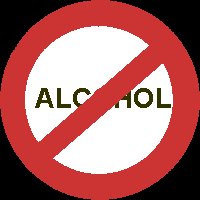Aziboy
Banned

Questioned by Sister Zubeda:
Q: As-salamu `alaykum. I have been taking medicine with alcohol content called Benylin. Is it halal or haram to take it and also about perfume and beauty products containing alcohol?
Ans: Wa `alaykum as-salamu wa rahmatullahi wa barakatuh.
In the Name of Allah, Most Gracious, Most Merciful.
All praise and thanks are due to Allah, and peace and blessings be upon His Messenger.
Dear sister, thank you for trusting us. We really appreciate your question as it shows your strong faith and great fear from Allah Almighty.
It is the duty of every Muslim to observe all what he or she eats, drinks, or even takes as medicine. It is our creed, as Muslims, that both illness and recovery are from Allah Almighty. However, we are ordered by our Prophet (peace and blessings be upon him) to take medications, but not to seek cure in unlawful (haram) substance.
Responding to your question, Dr. Hatem Al-Hajj, Dean of Shari`ah Academy of America, and who is also a professional physician, stated,
Seeking treatment is recommended, and may be at times mandatory. However, one should seek wholesome medicines.
It was narrated that the Prophet (peace and blessings be upon him) said, “Allah sent down the disease and the cure, and He made a cure for every disease. So seek treatment, but do not use as medicine that which is haram.” (Abu Dawuud from Abu al-Darda’)
The prohibition of using unlawful (haram) substances as medicine applies primarily to Alcohol.
Tariq ibn Suwayd al-Ju‘fi (may Allah be pleased him) asked the Prophet (peace and blessings be upon him) about wine and he forbade him or disliked his making it. He said: I only make it as a medicine. He (peace and blessings be upon him) said, “It is not a medicine; rather it is a disease.” (Muslim)
Also, every intoxicant is forbidden. The Messenger of Allah (peace and blessings be upon him) said, “Every intoxicant is haram.” (Al-Bukhari and Muslim from Abu Musa)
Based on the above and other proofs, there is a consensus about the prohibition of using pure khamr (wine) as medicine. The scholars also agreed on the impermissibility of using haram as medicine in presence of halal alternatives.
If alcohol was utilized in the preparation, but the final medicine is not intoxicant, this medicine will be halal to use according to: Both Fiqh Assemblies belonging to the OIC and MWL, the Permanent Committee for Fatwa and Research in KSA, and the European Council for Ifta’ and Research.
Shaykh-ul-Islam Ibn Taymiyah (may Allah have mercy on him) said, "If alcohol falls into water and is altered, then someone drinks it, he would not be drinking khamr and the hadd (penalty) shall not be warranted for him, since nothing of its taste, color or smell remained."
Benylin has 5% alcohol, which is a high percentage, therefore it should be avoided.
As for the external use of alcohol, it is controversial, and I believe that alcohol is not physically impure, and that it may be used for topical applications to the body. The one clear report about its physical filth is from `Umar in a message he wrote to Khalid ibn al-Walid, however, the whole report is not authentic.
Sheikh Yusuf Al-Qaradawi (may Allah preserve him) said: “… even saying liquor is impure or filthy is not granted by all scholars. Some jurists of the Salaf questioned that matter, saying liquor's impurity is rather abstract... This is an opinion of weight, ascribed by Qurtubi to Rabi`a …, Al-Layth ibn Sa`ad, Al-Muzani and some other imams of later periods in Baghdad and N. Africa … In his book Al-Sayl Al-Jarrar, Imam Al-Shawkani said: “There is no genuine or dependable evidence that liquor is impure”.
It says in a statement of the Islamic Fiqh Council of the Muslim World League: “… It is also permissible to use alcohol for external cleaning of wounds, to kill germs, and in creams and lotions that are used externally.”
In summary, it is incumbent upon the Muslim physician and pharmacist to use alternatives of alcohol whenever possible. As for the patients, they may use medications in which alcohol was utilized in the preparation, as long as the medicine is not intoxicant, and it doesn’t have alternatives.
A medicine will be considered khamr (intoxicant) if it causes intoxication before death, but if it causes intoxication at a dose (amount) that is not possible to be consumed by a human being without killing him, then it is not intoxicant.
Avoiding it when there is no need is an act of cautious piety. Muslims, when capable, should work on finding alternatives to it. Benylin, however, has 5% alcohol, which is a high percentage, therefore it should be avoided. There are many other alternatives with much less alcohol content.
Allah Almighty knows best.
